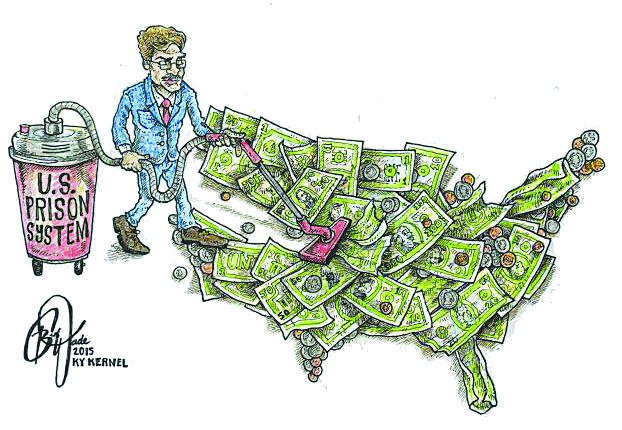Give prisoners a chance to succeed
October 19, 2015
Convicts and felons have long been attached to stigmas of poor education, lack of moral aptitude and worthlessness, which has caused them to struggle to find a place in society upon leaving prison.
But in an ironic and redeeming twist, three of Eastern New York Correctional Facility’s own proved that worthless and hopeless are two stereotypes one shouldn’t assume of our more than 2 million inmates.
In front of fellow students of the Bard College Prison Initiative program, the inmates proved their worth to others who would deny them a chance to have a prosperous and successful life, when they defeated the Harvard debate team — U.S. national debate champions.
In an opinions piece for the Wall Street Journal entitled “Punishment Fails. Rehabilitation Works,” James Gilligan, a clinical professor of psychiatry at New York University, said many Americans don’t see the difference between restraint and punishment, which has lead to stigmas of convicts and poor results of our prison system, which sees more returnees than successfully rehabilitated residents.
He argued that while there are necessary restraints that need to be placed on criminals, if the purpose is to one day turn these people back out into society, then punishment will not suffice.
To motivate someone to pursue success requires major behavioral, mental and physical therapies. Many prisoners end up in prison because the economic class they grew up in led them to believe there was no successful alternative to providing for themselves or their families than to break the law.
The argument that a harsh life in prison will correct poor behavior is both ignorant and inhumane. Never should rape, beatings and the threat of being killed be a solution to an indoctrinated behavior that was caused by the society we all live in and influence.
If you show a person they have the ability and potential to be constructive, and that they have a mind that, with proper training, could do things they thought had been out of reach — whether it was because of class, race, age or gender — they are much more likely to pursue success than the life that put them in a box.
Self-esteem issues and mental illness are characteristic of many prisoners. Many people who would be forced into or would choose a life of crime don’t see their worth as human beings, and for us to turn a blind eye to that need is to encourage that classification: that a criminal is useless, and not worth my concern or my money.
When did we decide to place the value of a human life on a spectrum? Have we become nothing more than a computer that can measure casualties of an economic crisis, and our charts are reading 2 million lives?
Lives are absolutely at stake in the state of our prison system, especially when a blind eye is turned at convicts’ physical needs. Our society blames drug addicts for their own plight and demise; but if they desired the chance to a clean and healthy future, could we put aside our pride and self-righteousness to see the possibilities?
In the case of a human being’s prospects, it is both compassionate and beneficial for all if we strive for a better society, than to be cynical and assuredly right because of a fixed and corrupt system.























































































































































